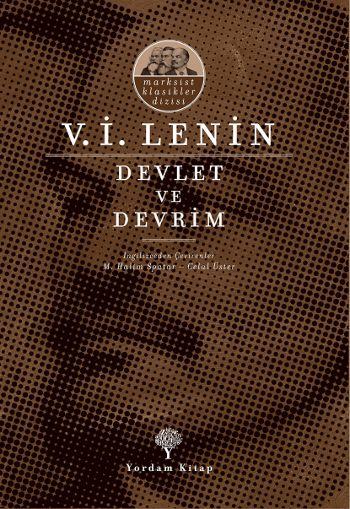What do you think?
Rate this book


160 pages, Paperback
First published January 1, 1917
This was Lenin commentary on Marx and Engels views about role and fate of state during and after proletariat revolution in response to criticism by social democrats and anarchists during Bolshevik revolution. writing is straightforward, to the point and clear position of these three different political theories regarding state. would try to summaries with quotations in bold.
Thesis start with giving a quick historical background of origin of state in light of dialectical materialism. state was not formed consensual agreement by all members of society, but During a certain stage of development with the emergence of classes in society contradictions between them became insoluble and the need for an organ for the oppression of one class by another ; it is the creation of “order”, which legalizes and perpetuates this oppression by moderating the conflict between classes. Given this description of state as an organ of oppression, arguments of social democrats to work within the existing state can be called anything (Lenin used to call them opportunists) but Marxism. not only under a monarchy, but also under a democratic republic the state remains a state, i.e., it retains its fundamental distinguishing feature of transforming the officials, the 'servants of society", its organs, into the masters of society.
On the other hand anarchists being against any type of authoritarianism call for complete abolition of state . Lenin called them utopians for thinking that having overthrown capitalism people will at once learn to work for society without any rules of law. The class which was dethroned from a privileged position would sit idle and won't try to take charge back. Capitalism won't be abolished overnight and Workers of vanguard party need to take charge of the affairs and use machinery of old bourgeois state to suppress any counter revolutionary attempt as well as take control of sources of production. And since the majority of people itself suppresses its oppressors, a 'special force" for suppression is no longer necessary! In this sense, the state begins to wither away. Instead of the special institutions of a privileged minority (privileged officialdom, the chiefs of the standing army), the majority itself can directly fulfil all these functions which .......have become so simplified and can be reduced to such exceedingly simple operations of registration, filing, and checking that they can be easily performed by every literate person, can quite easily be performed for ordinary "workmen's wages", stripping them of every shadow of privilege, of every semblance of "official grandeur" The more the functions of state power are performed by the people as a whole, the less need there is for the existence of this power.
This phrase "wither away " explain the transition of socialism to the ultimate goal , a communist society, a common goal with anarchists but to achieve this aim, we must temporarily make use of the instruments, resources, and methods of state power against the exploiters, just as the temporary dictatorship of the oppressed class is necessary for the abolition of classes. It is after the opportunities provided during this transitional phase that people will get used to observe basic elements of social interaction without force, without coercion, without subordination, without the special apparatus for coercion called the state.